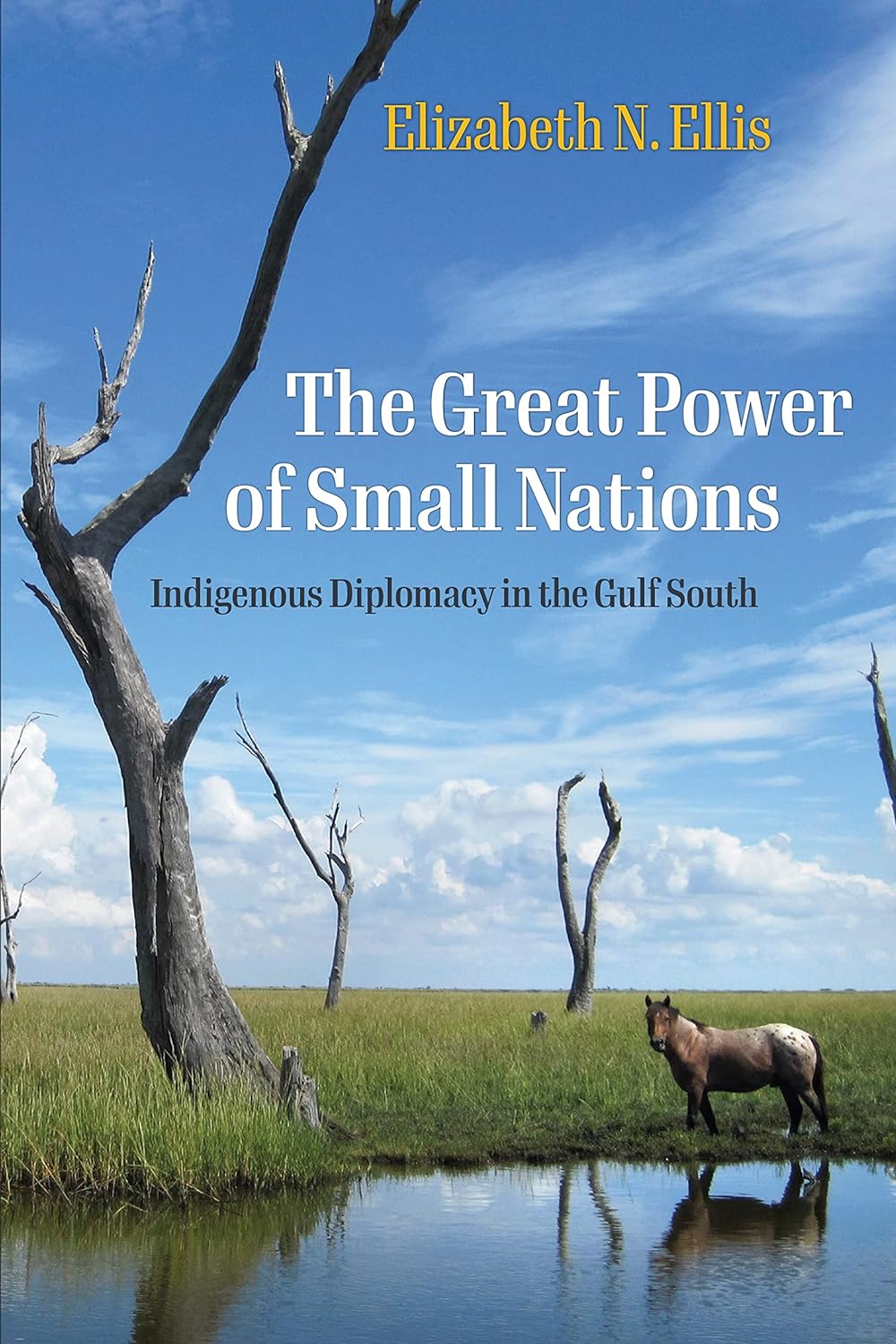The Great Power of Small Nations: Indigenous Diplomacy in the Gulf South
A fresh examination of the formidable and resilient Native nations who helped shape the modern Gulf South
In The Great Power of Small Nations, Elizabeth N. Ellis (Peoria) tells the stories of the many smaller Native American nations that shaped the development of the Gulf South. Based on extensive archival research and oral histories, Ellis’s narrative chronicles how diverse Indigenous peoples—including Biloxis, Choctaws, Chitimachas, Chickasaws, Houmas, Mobilians, and Tunicas—influenced and often challenged the growth of colonial Louisiana. The book centers on questions of Native nation-building and international diplomacy, and it argues that Native American migration and practices of offering refuge to migrants in crisis enabled Native nations to survive the violence of colonization.
Indeed, these practices also made them powerful. When European settlers began to arrive in Indigenous homelands at the turn of the eighteenth century, these small nations, or petites nations as the French called them, pulled colonists into their political and social systems, thereby steering the development of early Louisiana. In some cases, the same practices that helped Native peoples withstand colonization in the eighteenth century, including frequent migration, living alongside foreign nations, and welcoming outsiders into their lands, have made it difficult for their contemporary descendants to achieve federal acknowledgment and full rights as Native American peoples.
The Great Power of Small Nations tackles questions of Native power past and present and provides a fresh examination of the formidable and resilient Native nations who helped shape the modern Gulf South.

